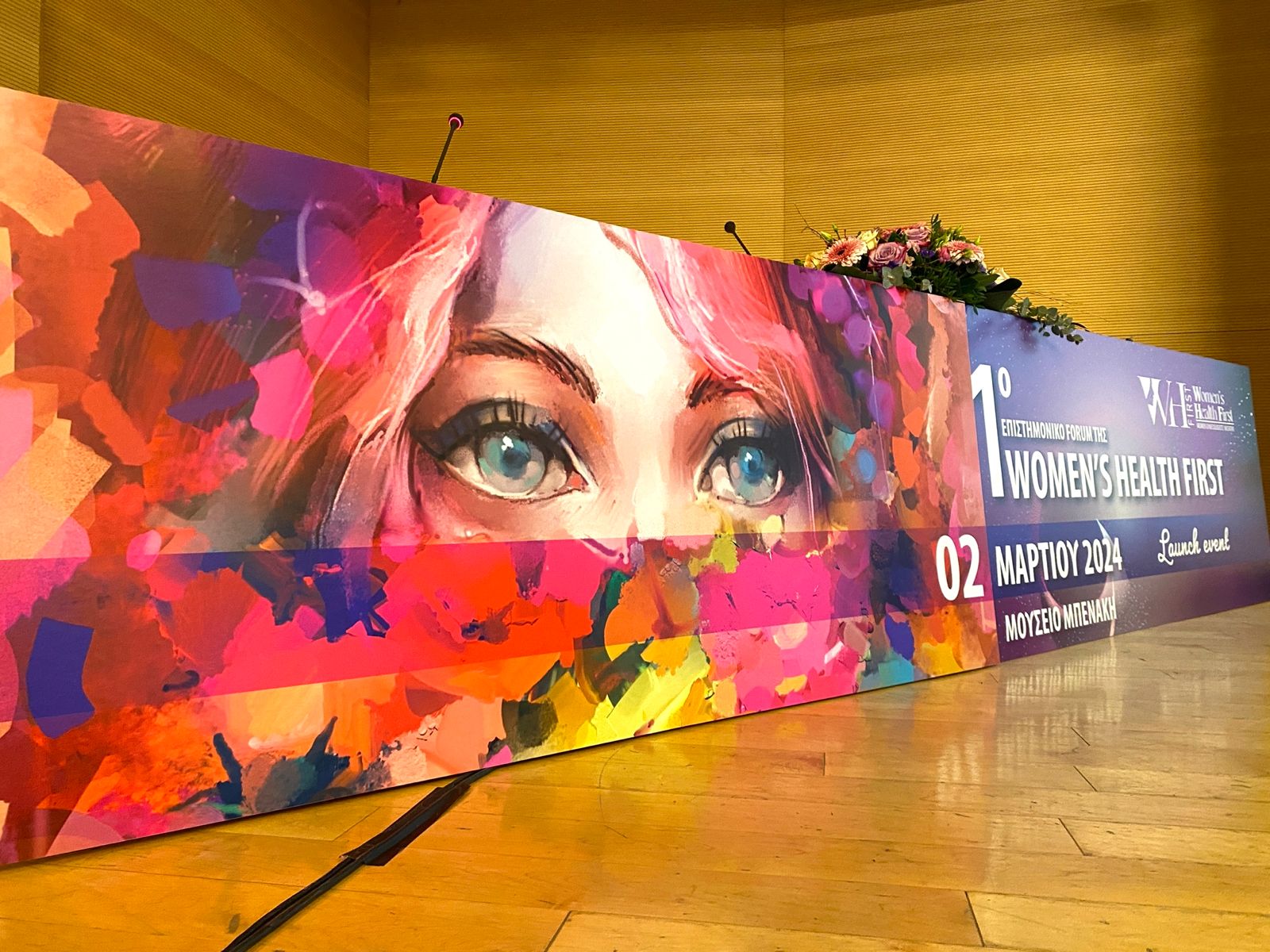For the first time in Greece, women gynecologists have teamed up to address a serious gap in medicine, pharma, and society, and to bring women’s health to the forefront and into policy agendas
Periods, adolescence, pregnancy, perimenopause, menopause – words that we often avoid in Greece, and some of which even carry stigma and shame. All words related to the female body and life cycle. Words that remain said behind closed doors. This is all about to change thanks to Women’s Health First (WHF), an ambitious non-profit initiative launched by Greek women gynecologists that aims to bring women’s health to the forefront.
Marking Women’s History Month and on occasion of International Women’s Day and its theme this year: “Inspire Inclusion”, To Vima English Edition spoke to the person behind Women’s Health First, Ioanna Tsiaousi, MD, gynecologist-obstetrician, during the association’s first forum held in Athens this month which sent out a loud and clear message: “your health matters”.
Women’s Health Matters
“Women’s health is on the 9 o’clock news in the US and in other countries of the world. It’s finally time it becomes news in Greece too,” says Tsiaousi.
“For years, female health has been limited to ‘bikini medicine’, which basically focuses on conditions concerning the breast and reproductive organs. And undeniably a great deal has been accomplished in these fields but there is so much more to the female body that has been neglected or even ignored,” she says.
Judging by the turnout at the 1st WHF forum, Greek women young and old want answers. And it’s not only happening in Greece.

“Women in today’s fast-paced world are faced with many new challenges and needs. And although we live in an era of readily available information, they rarely get science-based answers to their questions. As women and doctors we too are part of this change and are able to understand the modern woman and her needs even more so through our medical practices. Only together can we reframe the conversation about female health and prioritize it in research, medicine, and clinical practice. That’s where WHF comes into the picture,” she says.
WHF has already attracted the interest of hundreds of women in Greece who seek guidance and dozens of female doctors, dieticians, psychiatrists, social workers, cancer care providers, lawyers, athletes and artists – all volunteers – who can offer support as Women’s Health First ‘ambassadors’.
Tsiaousi tells To Vima English Edition that the idea behind WHF was to redefine women’s health and for female experts to raise awareness and to empower women with up-to-date and reliable information; “about their bodies, their needs, their options at all ages without discrimination”.
Greek Women’s Health Without Shame
For Tsiaousi the primary goal of the initiative is to get Greek women to start speaking about their health without shame.
“It is finally time that women’s health issues top the agenda. Dialogue must now open for issues like menopause, which has remained silent for decades, or for sexual health, new fertility options, new types of family structures, women’s heart health, osteoporosis, the impact of social media on teenage health, medications for women and how these are designed,” Tsiaousi, who is also works in the pharma industry, explains.
“Up until very recently, women over 50 were made to believe that they had no options; that they were doomed to be old and invisible,” she says. “This can change with education, awareness and support.”
And it is changing elsewhere. From the UK and the US to Africa and India a “menopause revolution” has started. Celebrities like Michelle Obama, Salma Hayek, Gwyneth Paltrow, Emma Thomson, Sharon Stone, Naomi Watts, and Oprah Winfrey are letting go of the stigma and speaking up about menopause paving the way for women’s health to get on the agenda. At a slower pace, it is happening in Greece also with several stars sharing their stories with the public.
Undoubtedly, Women’s Health First is breaking new ground in Greece bringing together for the first time experts and medical doctors who can offer valuable insights into female health and feedback that can be used by policymakers to create a truly inclusive society in tune with this year’s International Women’s Day motto.
“Our service to society,” says Tsiaousi “is to educate and introduce a holistic approach to female health and to address a gender bias in research, pharma, and medicine which has created a large gap in the field and confusion among women”.
“Still today there are stereotypes that must be overturned; there are underestimated needs and overlooked conditions among women that must be identified.”
According to the latest data by Eurohealth and the European Institute of Women’s Health (EIWH), there has been no systematic data collection or relevant research in Greece on women’s health. Comparable data is only available mainly from non-Greek sources, including the WHO, the World Bank, and Eurostat, many of which are outdated and lacking country/culture-specific information.
Additionally, Eurohealth adds that it has been unable to identify women-specific health policies, apart from those concerning pregnancy leaves and women’s rights to employment after childbirth.
Women’s Health First: Getting the Conversation Started
To move forward, WHF is working with women’s associations, ministries, athletic organizations, legal groups, and medical associations, and is inviting women of all ages in Greece to join its ranks.
WHF has events planned out for the year ahead including the next scientific forum, a three-pronged campaign focusing on menopause, motherhood and adolescent health, a series of studies, and above all, will be handing the podium over to the women themselves to share and to rewrite the narrative.
“The association’s vision is for women’s health to become a priority on an individual and collective level. This requires empowered women who will demand updated solutions and understand the importance of their choices for their lives.”
Πηγή: tovima.com

